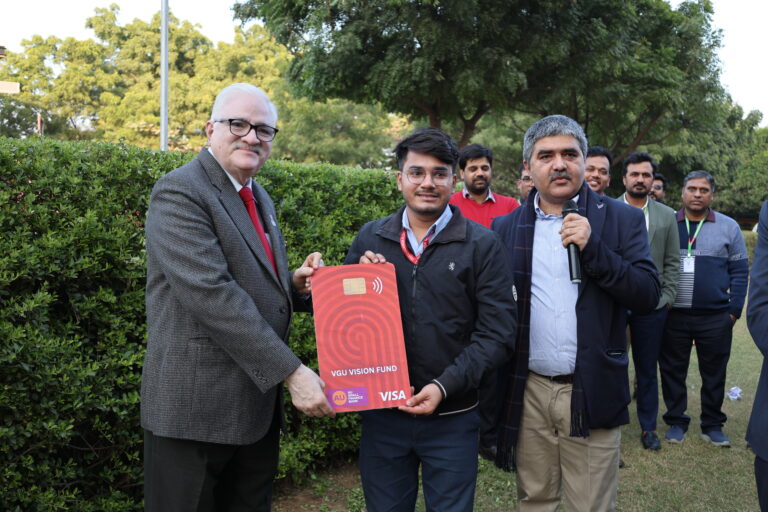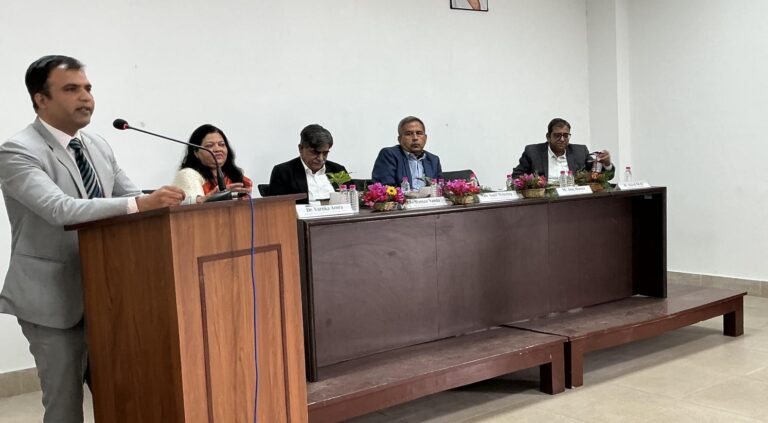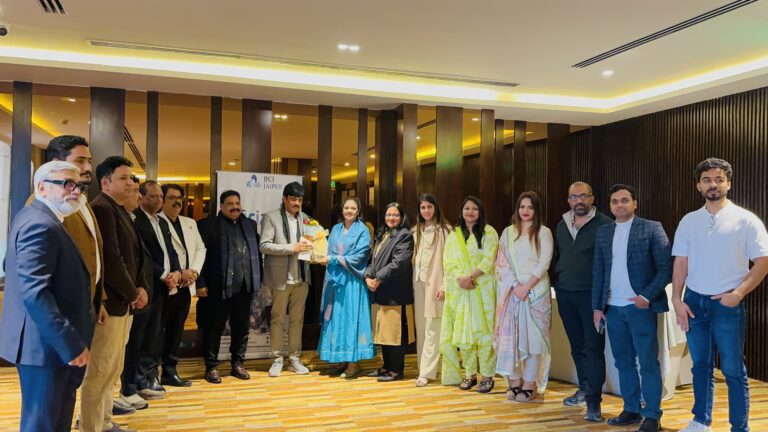
Shillong, Divya Rasthra. In an inspiring initiative aimed at developing solutions for pressing issues of Meghalaya like pollution, sustainable tourism, youth employment, and waste management, the Martin Luther Christian University, Shillong, hosted the Impact Week 2024, supported by PRIME Meghalaya, from July 4th to July 11th, 2024.
The closing ceremony was graced by Shri Conrad K Sangma, Hon’ble Chief Minister of Meghalaya, Shri Vijay Mantri, IAS, Commissioner & Secretary, Education Department, Smti T. Kumari Kharbamon, Vice Chancellor, Martin Luther Christian University (MLCU), Shri Jeff Rani, Sector Head, PRIME, Carolin Taenzer, Managing Director, Impact Week, government officials, coaches, experts, students, staffs and faculty of MLCU amongst others.
In his address the Hon’ble Chief Minister, Shri Conrad K Sangma stated that when the government was formed in 2019, a sharp vision was in his mind, to create an ecosystem for entrepreneurs, and, hence PRIME was started. In the first year of its existence, PRIME saw six hundred participants which increased to more than two thousand participants in the third year. Speaking on the presentations by different students, he applauded them and stated that he was impressed with the confidence that they showed. He went on to congratulate the PRIME team for the work they have done and are doing and also the Impact team for bringing out these aspects through the trainings and challenges provided.
Speaking about the CM-ELEVATE initiative which intends to handhold and finance twenty thousand entrepreneurs from the state of Meghalaya, he said that it is one of the most aggressive entrepreneurship programs in the country and around 300 to 400 crores has been budgeted as subsidy for entrepreneurs.
Impact Week supported by PRIME Meghalaya, witnessed participants consisting of Faculty Members and 105 students from fifteen colleges belonging to eight districts coming together. They were divided into team clusters, each discussing and working together to delve more into the concept of ‘Design Thinking’. Processes like recapping and creation of Team name, logo and setting up of expectations, Research, Synthesis, Cross sharing, Ideation, prototyping, Testing, and Pitch Presentation were also showcased.
Carolin Taenzer, Managing Director of Impact Week, highlighted the importance of Design Thinking in fostering innovation and entrepreneurship being a user-centric method, having been used to inspire the youth to come up with new ideas and change their mindsets from seeing problems as obstacles but rather as opportunities. “Since its inception in 2015, Impact Week has grown significantly, spreading across 16 countries in 4 continents, hosting 46 workshops so far, training more than 1300 people out of which 500 are roughly international from international companies and corporations, and 800 local people who have requested to take the method forward and to act as multipliers here locally”, she added. She also mentioned that till date over 735 different ideas have come up through challenges and workshops through the Impact Week.
The week kicked off with the first three days of the programme dedicated to a “Train-The-Coach” phase where 30 Junior Coaches who were faculty members of different colleges received training from 5 seasoned Senior Coaches. After the training was completed, the newly minted Junior Coaches passed on their knowledge received, via the training to the 105 participating students under the careful guidance of the Senior Coaches. A total of 5 Senior coaches from Pune, Kenya, and Munich led the training, mentored approximately 30 junior coach trainees over the initial three days dedicated to Design Thinking.
One of the student participants stated her experience stating that working in teams throughout the Impact Week has made her and her team understand that no information, suggestions, or idea is irrelevant, and every little detail can serve the purpose of providing solutions.
Subsequently, the programme witnessed interactive sessions on collecting perspectives, reframing challenges, and design thinking methodologies. Participants engaged in reflection, group learning, and hands-on activities, empowering them to become “Junior Design Thinking Coaches” upon completion. Highlighting the culmination of their efforts, a four-day Impact Week Challenge followed, where the trained coaches guided local students and young entrepreneurs in developing innovative business ideas and solutions to local issues using Design Thinking principles.
The program also witnessed issuance of certificates to Senior and Junior Coaches, student teams, Lead Coach and Organizers. There were also representatives from Austria, Sweden and Peru as well. This week-long journey showcases the collaborative power of education, training, mentorship, and visionary thinking in shaping a brighter future.





